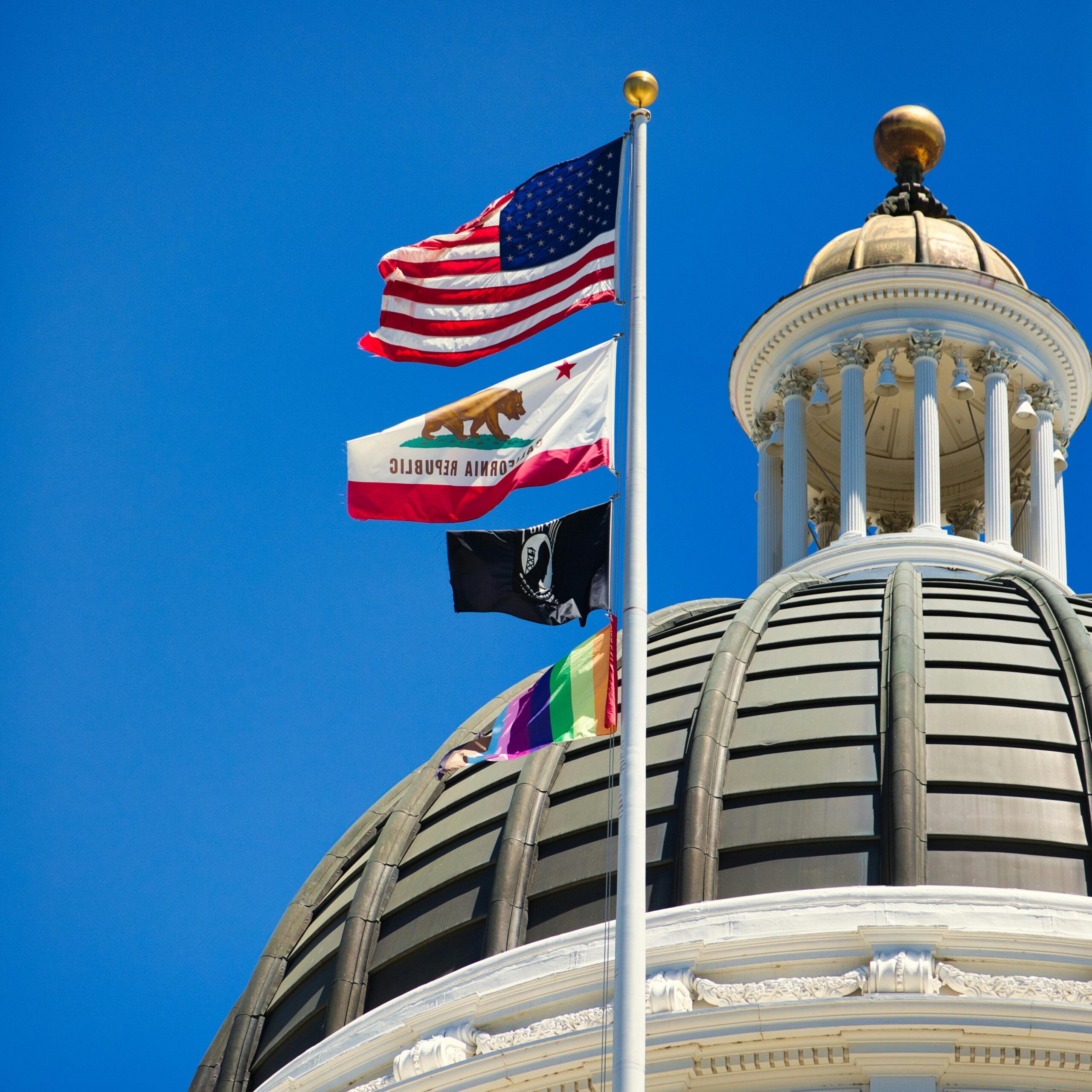California SB 253 and SB 261: Overview and Timeline
By John Wright
If you work in sustainability, you’ve heard of California SB 253 and SB 261. California is the world’s fourth largest economy, between Germany and Japan, and its decisions drive change across the United States and the world. That’s why the new climate disclosure law created by these state bills for U.S. companies doing business in the Golden State is top of mind.
SB 253 (often called the Climate Corporate Data Accountability Act, or CCDAA) and SB 261 were introduced in January 2023 and signed into law in October 2023 by Governor Gavin Newsom. They’re designed to make climate reporting more transparent, standardized, and credible.
A follow-up act, SB 219, amends the bills by giving the California Air Resources Board (CARB) time to clarify questions and adopt the regulations needed for implementation.
Let’s cover what “doing business in California” means, so you know if the bills apply to your company, then dive into the facts about each bill.
What does “doing business” in California mean?
The law doesn’t spell out exactly what doing business in California means. But most companies are using the State of California Franchise Tax Board (FTB) guidelines as an interim playbook. The FTB defines “doing business in California” as meeting any of the following:
- Engaging in any transaction for the purpose of financial gain within California
- Are organized or commercially domiciled in California
- Your California sales, property, or payroll exceed the following amounts:
- $690,144 in CA sales exceed (either the threshold amount or 25% of total sales) for 2022
- $69,015 in CA real and tangible personal property exceed (either the threshold amount or 25% of total property)
- $69,015 in CA payroll compensation exceeds (either the threshold amount or 25% of total payroll)
Again, this is not in the bill of the text. CARB will ultimately clarify this aspect of the law. But it makes it clear that it probably won’t take much activity in California to fall under SB 253 and SB 261.
What is California SB 253?
SB 253, or the Climate Corporate Data Accountability Act (CCDAA), requires public and private US businesses with more than a billion dollars in revenue doing business in California to report their corporate scope 1, 2, and 3 emissions, beginning in 2026 for 2025 data. Companies must also get third-party assurance of their reports, in accordance with the GHG Protocol.
The inclusion of scope 3 emissions is a major step forward in carbon transparency. Scope 3 emissions can account for over 90% of an organization’s climate impact, and can be difficult to measure (especially if you don’t have carbon accounting software, or, even better, a tool that uses primary data and automates reporting like the Glassdome Product Carbon Footprint solution).
Businesses will need to report on their 2025 Scope 1 and 2 emissions starting in 2026 and their 2026 Scope 3 emissions starting in 2027.
SB 253 also forces companies to submit their emissions calculation to a digital reporting platform in an easy-to-understand format, verified by an independent auditor like LRQA. The details around this will be clarified by CARB by July 2025.
CARB will be responsible for reporting and verification. Companies that don’t comply will be subject to civil penalties.
What is California SB-261?
SB 261 covers climate-related financial risk from greenhouse gas emissions. U.S. businesses with over $500mm in annual revenue will need to disclose their climate-related financial risks and mitigation strategies every two years.
The bi-annual risk report must include physical and transition threats faced due to climate change, and the measures the business is taking to adapt or mitigate those threats. With its lower revenue threshold, this bill covers many more businesses than SB 253.
The Climate-Related Risk Disclosure Advisory Group will be responsible for reviewing the reports and proposing policy changes and disclosure best practices.
SB 261 is built on existing rules used by financial institutions, especially the state’s own teachers’ retirement fund (CALSTRS). The idea is to protect consumers and investors from supply chain, workforce, and infrastructure disruptions caused by climate change.
The first reports are due by January 1, 2026.
What happens if I violate the California climate acts?
Potential civil penalties for companies that don’t comply can be up to $500,000 for emissions disclosures and $50,000 for financial risk statements. However, due to the complex nature of their calculation, good faith errors in Scope 3 calculation will not be punished.
When do I need to start reporting my emissions and financial risk?
Companies will need to measure and report their Scope 1 and 2 emissions according to GHG Protocol standards by 2026 using 2025 data. They will also need to get third-party verification of those measurements.
By 2027, they’ll also need to have their Scope 3 emissions measured and reported. Verification for scope 3 data can wait until 2030, given the large administrative lift required to get there.
Meanwhile, the first SB 261 financial risk reports are due by January 1, 2026.
How can I get my business ready for California SB 253 and SB 261?
As emissions and climate risks become regulated, emissions and financial data need to be treated similarly.
Much like you have financial software that tracks your money and investments, you need sustainability software that tracks your emissions.
That’s where Glassdome can help. Our Product Carbon Footprint solution uses primary data directly from your processes and machines and automates monthly reporting so you can track and improve your performance. It’s ISO 14067 verified, giving you a leg up on the competition with streamlined verification compliance. And it’s less expensive, faster, and more flexible than unwieldy traditional consulting engagements.
Even better, that same data pipeline can help you make your manufacturing more efficient, with higher quality output through our Continuous Improvement platform. Because better data leads to better decisions across your company.
Need to comply with California sustainability laws?
Get in touch with a Glassdome sustainability expert today to regulation-proof your business with real data


